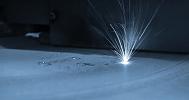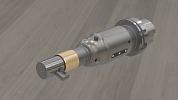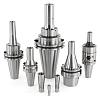- FMA
- The Fabricator
- FABTECH
- Canadian Metalworking
Eliminating Muda
- July 28, 2015
- News Release
- Management
As CIM—Canadian Industrial Machinery takes a special look at lean manufacturing this month, we look at one of the fundamental principles: reducing the seven wastes (muda).
Muda is one of the three categories of waste identified in lean manufacturing. The other two categories, mura (the waste of unevenness) and muri (the waste of overburden), often can be byproducts of muda. Taiichi Ohno, who helped develop the Toyota Production System (TPS), listed seven forms of muda and advocated waging all-out war on these wastes.
In fact, all the tools and techniques of lean manufacturing have been developed to drive continuous improvement throughout an entire organization, every day, in the effort to eliminate muda. This is one of the key reasons that lean practices are so effective.
Toyota is not only one of the largest car manufacturers in the world today, it’s also one of the most profitable, while retaining quality, reliability, time to market, model changeover time, and productivity.
It is constantly working at eliminating muda, mura, and muri throughout the organization every day.
The 7 Forms of Muda
- Transportation: Unnecessarily moving work-in-process (WIP) and materials around the plant, from process to process and to or from the warehouse.
- Inventory: In all of its forms, whether raw material, WIP, or finished goods, inventory is waste. It consumes capital and requires space to store. Thus, you need additional people to count, move, inspect, and rework and repair inventory.
- Motion: Motions such as bending over to pick up parts; walking between processing steps; and reaching for tools, parts, and equipment all are waste.
- Waiting: Waiting for a machine to finish an operation, waiting for upstream work to be completed, waiting for material, waiting for instructions, waiting for setup, and waiting for any reason are all waste.
- Overprocessing: Doing extra processing that the customer really does not want creates waste.
- Overproduction: Producing more than the customer requires or producing it sooner than required is waste.
- Defects: Producing defective products that must be checked, reworked, and scrapped is a waste.
Of these wastes, Ohno said that overproduction is the worst because it leads to all of the other wastes.
It is important to note that these wastes are almost always in combination, and rarely occur individually
.Mura: The waste caused by variation (unevenness): Uneven production, uneven flow, and uneven staffing are all forms of mura.
Muri: The waste caused by overburdening people and equipment.
subscribe now


Keep up to date with the latest news, events, and technology for all things metal from our pair of monthly magazines written specifically for Canadian manufacturers!
Start Your Free Subscription- Industry Events
MME Winnipeg
- April 30, 2024
- Winnipeg, ON Canada
CTMA Economic Uncertainty: Helping You Navigate Windsor Seminar
- April 30, 2024
- Windsor, ON Canada
CTMA Economic Uncertainty: Helping You Navigate Kitchener Seminar
- May 2, 2024
- Kitchener, ON Canada
Automate 2024
- May 6 - 9, 2024
- Chicago, IL
ANCA Open House
- May 7 - 8, 2024
- Wixom, MI



















